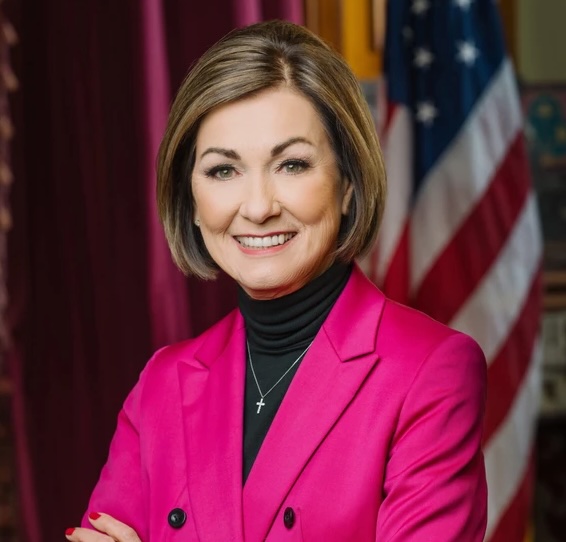On June 2, 2025, Gov. Kim Reynolds (R) signed HF 954, making Iowa the sixth state to ban ranked-choice voting (RCV) this year.
The new law says: “An election in this state shall not be conducted using ranked choice voting or instant runoff voting.”
The bill also makes other changes to election laws in the state, including authorizing the use of electronic poll books; requiring the state department of transportation to share a list with the state registrar of individuals who have submitted documentation indicating that they are not a U.S. citizen; requiring the counting of absentee ballots to begin no later than 9 a.m. on Election Day; and, requiring minor parties to receive 2% of the vote in the preceding three general elections for ballot access, instead of the last general election, to qualify.
The Republican-sponsored bill passed the Iowa General Assembly largely along party lines. No Democrats voted for the bill, and one Republican in the Iowa Senate voted against the measure.
State Sen. Ken Rozenboom (R), who supported the RCV ban, said, "It makes the votes harder to count and it’s much harder to ensure a transparent and accountable democratic process. And in 2025 with the heightened expectations and concerns about the voting process, I think this is an excellent proposal."
Sen. Sarah Trone Garriot (D), who opposed the bill, said, "Ranked-choice voting gives the people what they want: more choices. ... It is possible to have multiple candidates, and no one is a spoiler. Instead, we see increased voter participation and much higher voter satisfaction because all candidates are considered and all the votes count. The winner who comes out on top actually represents the will of the people."
State Auditor Rob Sand (D), who has declared his candidacy for governor in the 2026 election, also said that he supports RCV.
With Reynold’s signature, Iowa is the sixth state — joining Arkansas, Kansas, North Dakota, West Virginia, and Wyoming — and fifth with a Republican trifecta, to ban RCV this year. Iowa is the 17th state overall to do so. The number of states to ban RCV in 2025 now ties that of 2024 for the most bans adopted in a year. Banning RCV has been a priority of Republican-led legislatures since Florida and Tennessee first passed prohibitions in 2022. All but two of the 17 states with bans adopted them with a Republican trifecta in control of state government.
Earlier this year, Kansas Gov. Lara Kelly (D) became the first Democratic governor to sign an RCV ban, SB 6. Two of 46 Democratic lawmakers in the Kansas Legislature voted for that bill. Kentucky also adopted an RCV ban under a divided government when HB 44 became law in 2024 after the legislature overrode Gov. Andy Beshear’s (D) veto. No bill authorizing a statewide use of RCV has passed in any state since Hawaii adopted RCV for certain elections in 2022.
Eight of the 23 states with Republican trifecta remain without a ban on RCV.
At the local level, the Boston City Council recently passed a measure that, if approved by the state legislature and the voters of the city, would make it the ninth of the United States’ largest 100 cities to use RCV for their city elections.
The eight cities that use or are scheduled to use RCV are: Oakland and San Francisco in California; Washington, D.C.; Minneapolis and St. Paul in Minnesota; New York, New York; Portland, Oregon; and Seattle, Washington. D.C. was the most recent major city to opt for the system when voters approved Initiative 83 72.9% to 27.1% in 2024, while Portland was the most recent to implement RCV, using it for city elections for the first time in 2024 after voters approved Measure 26-228 in 2022.
Additional reading:



